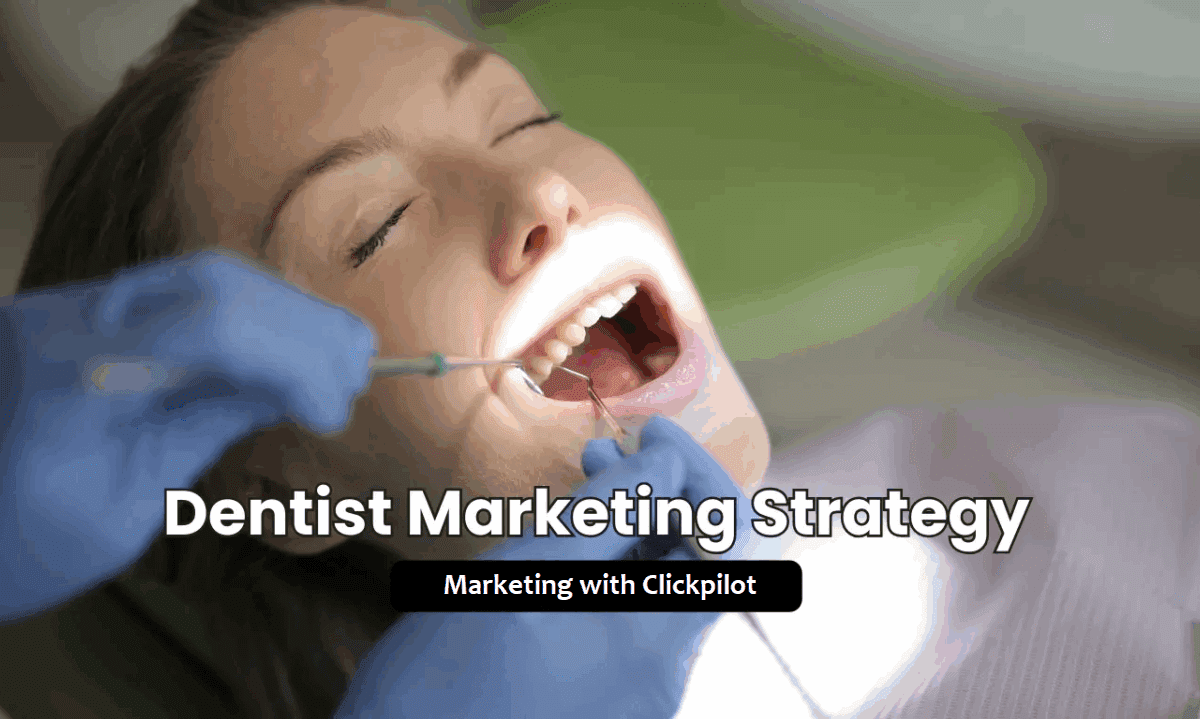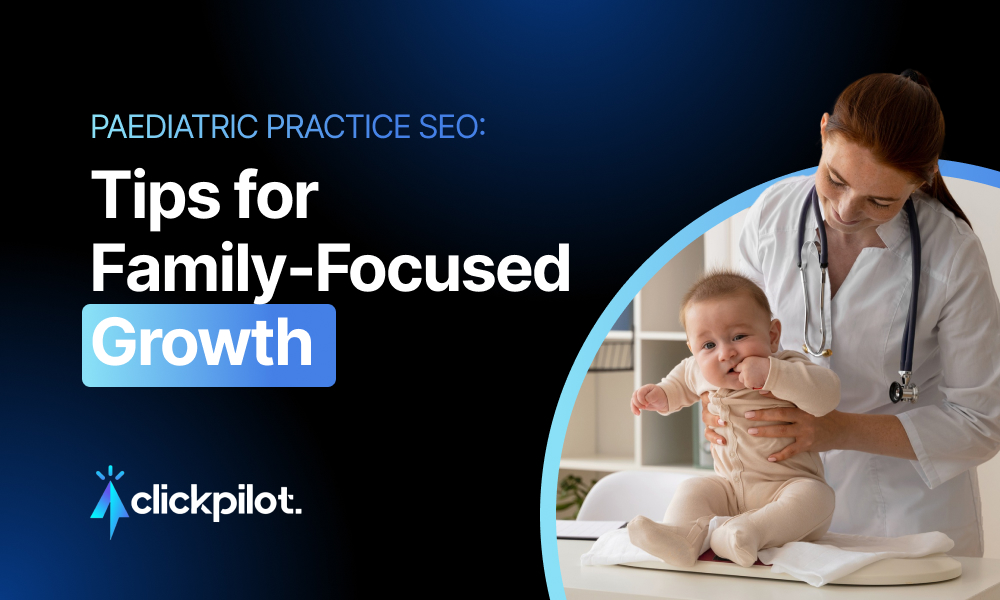In today’s digital world, having a strong online presence is vital for healthcare providers. This guide will help you navigate through Healthcare Digital Marketing, focusing on important SEO (Search Engine Optimisation) strategies to help boost your online visibility and connect with more patients.
SEO is a key part of Healthcare Digital Marketing. It helps your healthcare practice show up higher in online search results, making it easier for people to find you. A well-optimised website is the stepping stone to other online marketing methods like Healthcare Advertising, Healthcare Social Media Marketing, and Healthcare Google Ads. These marketing strategies work together to help build a strong online presence for your practice.
But Healthcare SEO is not just about getting more people to visit your website. It’s also about providing a good online experience that meets the needs of your visitors. For example, including Patient Testimonials on your website can help build trust, while Local Healthcare Marketing strategies make sure you’re reaching the people in your area who need your services the most.
The rise of Telehealth Marketing shows how digital technology is creating new ways to provide and promote healthcare services. Medical Practice Marketing has changed too, adapting to the ways people use digital technology to find and interact with healthcare providers. Healthcare Conversion Rate Optimization (CRO) is another important strategy that helps turn website visits into valuable patient interactions.
The aim is not just to attract more visitors, but the right kind of visitors who are likely to become patients. This requires a good understanding of Healthcare Marketing Strategies that match the goals of your healthcare practice.
As we go through this guide, we’ll explore a variety of Healthcare Marketing Solutions to help build a solid and effective online marketing strategy. From finding the right keywords to use, to improving your website’s SEO, this guide will provide clear and simple steps to help improve your online marketing efforts.
So, let’s get started on this journey to discover SEO strategies that can help boost your healthcare practice’s online success.
Understanding SEO

SEO, which stands for Search Engine Optimization, is a fundamental part of Healthcare Digital Marketing. It’s all about making your healthcare practice’s website more visible to people who are searching for services or information related to healthcare on search engines like Google. Here’s a deeper look into what SEO entails and why it’s crucial for Healthcare Marketing Strategies.
What is SEO?
In simple terms, SEO is a set of strategies used to improve your website’s ranking on search engine results pages (SERPs). When someone searches for terms related to healthcare, you want your website to show up as close to the top of the results as possible. SEO involves various techniques to make this happen.
Why SEO is Crucial for Healthcare Marketing
Increased Visibility:
- SEO helps increase your practice’s visibility online. When your website ranks higher on search results, more people are likely to see and click on it.
Cost-Effectiveness:
- Unlike Healthcare Advertising where you pay for each ad, SEO is cost-effective over the long term. Once your website ranks well, you don’t have to pay for clicks like you would with Healthcare Google Ads.
Building Trust and Credibility:
- People tend to trust websites that appear at the top of search results. Good SEO practices help build trust and credibility with your audience.
Enhanced User Experience:
- SEO is not just about pleasing search engines; it’s also about providing a good user experience. A well-optimized website is user-friendly, easy to navigate, and provides valuable information.
Local Engagement:
- Local Healthcare Marketing is a part of SEO that focuses on promoting your practice to people in your local area. This is crucial for healthcare providers as most patients prefer local clinics and hospitals.
Long-term Growth:
- SEO is a long-term strategy. It may take some time to see results, but the benefits are long-lasting. Unlike paid advertising, the efforts you put into SEO provide value over a longer period.
Integrating Other Digital Marketing Strategies
SEO forms the base for other online marketing strategies. For example, the keywords you use in SEO will also be used in Healthcare Social Media Marketing and Healthcare Google Ads. Patient Testimonials can be used as content on your website to improve SEO while also being shared on social media. Likewise, insights from SEO can inform your Healthcare Conversion Rate Optimization (CRO) strategies by understanding what content resonates with your audience.
Aligning with Telehealth Marketing
The digital world is ever evolving, and Telehealth Marketing is a testament to that. SEO strategies can be tailored to align with telehealth services, ensuring that individuals seeking virtual healthcare services can easily find your practice.
Keyword Research

Navigating the vast world of Healthcare Digital Marketing requires a clear map, and in the realm of SEO, that map is crafted using keywords. Keywords are the terms and phrases that potential patients type into search engines, and understanding which ones are relevant to your healthcare practice is vital. Here’s a deep dive into the importance of keyword research and how it ties into your overall Healthcare Marketing Strategies.
The Role of Keywords in Healthcare SEO
Every time someone uses a search engine like Google, they type in specific words or phrases to find what they’re looking for. These words are known as keywords. For healthcare providers, picking the right keywords means connecting with individuals who are actively seeking healthcare services or information.
Why Keyword Research Matters
1. Reaching Your Target Audience:
Proper keyword research ensures that your Healthcare Digital Marketing efforts target the right audience. Whether it’s individuals looking for Telehealth Marketing services or those wanting to read Patient Testimonials, the right keywords connect you with them.
2. Staying Ahead of Competitors:
Many healthcare providers may offer similar services. To stand out in search results and outpace competitors, you need to know which keywords potential patients are using and optimise your website for them.
3. Informing Content Creation:
Keywords play a pivotal role in shaping the content on your website. Whether it’s blog posts, Healthcare Social Media Marketing content, or Healthcare Google Ads, knowing what terms your audience uses helps in crafting relevant and engaging content.
4. Boosting Local Engagement:
Local Healthcare Marketing thrives on local keywords. For instance, a physiotherapy clinic in Sydney would benefit from keywords like “Sydney physiotherapy” or “physio near me in Sydney”.
5. Adapting to Changing Trends:
The digital landscape is ever evolving. Keyword popularity can change over time, and regular keyword research ensures that your Healthcare Marketing Strategies remain current and effective.
Tools for Effective Keyword Research
Several tools can assist in your keyword research journey. Platforms like Google’s Keyword Planner can provide insights into keyword volumes, competition, and more. Additionally, tools designed for Healthcare Advertising can offer keyword suggestions tailored for the healthcare sector.
Implementing Keywords in Content
Once you’ve identified the right keywords, the next step is weaving them into your content. This includes website pages, blog posts, Healthcare Social Media Marketing campaigns, and even Healthcare Google Ads. It’s crucial to use keywords naturally, ensuring that content remains engaging and informative for readers while also being optimised for search engines.
On-Page SEO Strategies

On-Page SEO is all about optimising individual pages of your website, ensuring they rank higher in search results and attract more relevant traffic. In the realm of Healthcare Digital Marketing, on-page SEO is a key tool to ensure potential patients can easily find and engage with your services online. Let’s delve into the various on-page SEO strategies and how they align with your Healthcare Marketing Strategies.
Importance of On-Page SEO in Healthcare
On-Page SEO is crucial as it directly impacts how search engines understand and rank your website. For healthcare providers, this means ensuring that when someone searches for services or information you offer, your website appears prominently in the results.
Key Elements of On-Page SEO
1. Title Tags and Meta Descriptions:
These are the first things people see in search results. A compelling title tag and a clear meta description can increase the chances of someone clicking on your website, especially if they include relevant keywords like “Healthcare Social Media Marketing” or “Telehealth Marketing”.
2. URL Structure:
A clean and descriptive URL helps both search engines and users understand what a page is about. For example, a URL like “/services/telehealth-marketing” is clear and keyword-focused.
3. Heading Tags:
These are the first things people see in search results. A compelling title tag and a clear meta description can increase the chances of someone clicking on your website, especially if they include relevant keywords like “Healthcare Social Media Marketing” or “Telehealth Marketing”.
4. Image Optimisation:
Images can enhance user experience, but they need to be optimised. This includes using relevant file names, alt tags, and ensuring they load quickly. An image related to “Local Healthcare Marketing”, for instance, might have an alt tag like “Local clinic advertisement”.
5. Content Quality and Keyword Usage:
Your content should be high-quality, relevant, and engaging. It should naturally incorporate keywords, ensuring it provides value to readers while also being optimised for search engines.
6. Internal Linking:
Linking to other relevant pages on your website helps users discover more content and signals to search engines about the structure and importance of pages. For instance, a post on “Medical Practice Marketing” could link to a related article on “Healthcare Conversion Rate Optimization (CRO)”.
Mobile Optimisation
With many Australians accessing the web via mobile devices, ensuring your website is mobile-friendly is paramount. This means it should load quickly and look good on smaller screens, providing a seamless experience for users searching for healthcare services on the go.
Speed and User Experience
A fast-loading website not only ranks better but also provides a better user experience. Integrating Healthcare Marketing Solutions that enhance site speed can make a significant difference in user engagement and conversion rates.
Content Creation

Crafting meaningful and engaging content is the heart of any successful Healthcare Digital Marketing strategy. It’s not just about filling pages with words; it’s about delivering value, addressing concerns, and showcasing expertise to your audience. Whether it’s articles about the benefits of Telehealth Marketing or sharing genuine Patient Testimonials, the content you create plays a pivotal role in attracting and retaining potential patients. Let’s explore the nuances of content creation and its significance in Healthcare SEO.
The Power of Quality Content
Quality content can set you apart in the crowded digital landscape. Informative and well-written content positions your healthcare practice as a trusted authority, encouraging visitors to spend more time on your site and engage with your services.
Incorporating Keywords Naturally
Keyword stuffing is a thing of the past. Today, it’s all about incorporating keywords naturally into your content. Whether it’s a blog post about Healthcare Social Media Marketing or a page dedicated to Healthcare Conversion Rate Optimization (CRO), the keywords should flow seamlessly within the content, enhancing its readability and relevance.
Types of Content to Consider
- Blog Posts: Regularly updated blogs on topics like Local Healthcare Marketing or the latest trends in Healthcare Advertising can drive consistent traffic to your site.
- E-guides and eBooks: Detailed guides on topics such as Healthcare Marketing Strategies can be offered in exchange for contact details, aiding in lead generation.
- Videos: With the rise of visual content, creating videos about your services or explaining complex healthcare topics can engage visitors more effectively.
- Infographics: These visual tools can simplify complex data, making it easier for your audience to grasp essential healthcare concepts or trends.
- Patient Testimonials: Sharing real stories and experiences can build trust and give potential patients a glimpse into the quality of care they can expect.
Aligning Content with User Intent
Understanding what your audience is looking for is crucial. If someone is searching for information on Telehealth Marketing, they’re likely interested in understanding its benefits, how it works, or perhaps seeking such services. Your content should align with this intent, answering their questions and guiding them towards taking the desired action, be it making an appointment or signing up for a newsletter.
Sharing and Promoting Content
Once you’ve created content, it’s essential to promote it. Share your articles, videos, and infographics on Healthcare Social Media Marketing platforms, use Healthcare Google Ads to reach a broader audience, or send out newsletters to keep your existing patients informed.
Off-Page SEO Strategies

While the content on your website is essential, there’s a whole world outside of your site that can influence how it ranks in search results. Off-Page SEO refers to all the actions taken outside of your website to improve its position in search rankings. In the context of Healthcare Digital Marketing, this means building a strong online reputation and presence. Let’s delve into the various off-page strategies and understand their significance in boosting your Healthcare SEO.
The Significance of Off-Page SEO
Having a well-optimised website is fantastic, but search engines look at more than just your site when deciding rankings. They consider how the broader online community perceives your website. Think of off-page SEO as building your website’s online reputation, much like how patient testimonials vouch for the quality of a healthcare provider’s services.
Building Quality Backlinks
One of the cornerstones of off-page SEO is backlinks – links from other websites pointing to yours. But it’s not just about quantity; the quality of these links is crucial.
- Guest Posting: Writing articles for reputable websites in the healthcare sector can not only showcase your expertise but also provide valuable backlinks.
- Partnerships: Collaborate with related healthcare entities, like Telehealth Marketing platforms or medical equipment suppliers, to exchange links.
- Local Directories: Ensure your healthcare practice is listed in local directories, enhancing Local Healthcare Marketing efforts.
Social Media and Healthcare Marketing
Engaging in Healthcare Social Media Marketing does more than just boost your online presence. Every share, like, and comment can act as a vote of confidence in your content, indirectly influencing SEO.
- Sharing Content: Regularly share articles, patient testimonials, and other content to engage with your audience and drive traffic back to your site.
- Engaging with Followers: Answer questions, join healthcare discussions, and be an active participant in your online community.
Online Reviews and Reputation Management
Online reviews, especially in the healthcare sector, can significantly impact your online reputation.
- Encouraging Reviews: Encourage satisfied patients to leave positive reviews on platforms like Google My Business.
- Addressing Negative Reviews: Address any negative feedback promptly and professionally, showcasing your commitment to patient satisfaction.
Healthcare Advertising and Off-Page SEO
While Healthcare Advertising, especially Healthcare Google Ads, is a paid strategy, it can complement off-page SEO efforts. Effective ads can drive traffic, and if users find value, they might link back to your content, share it, or even become regular visitors.
Local SEO

For healthcare providers, the local community is often the primary target audience. Whether it’s a general practice in Melbourne or a physiotherapy clinic in Sydney, reaching the local audience effectively is crucial. Local SEO, a subset of Healthcare Digital Marketing, focuses on promoting your services to local patients when they’re searching for healthcare services near them. Let’s dive into the importance of Local Healthcare Marketing and the strategies that can give your practice a local boost.
The Essence of Local SEO
While general SEO aims to improve your website’s visibility on a national or global scale, Local SEO zeroes in on capturing the attention of people in your immediate vicinity. Think of it as the digital equivalent of a local newspaper ad, but far more targeted and interactive.
Key Components of Local SEO:
- Google My Business (GMB) Listing:
- This free tool by Google allows businesses to manage their online presence across Google, including search and maps. Ensure your listing is up-to-date with correct contact details, opening hours, and patient testimonials.
- Local Keywords:
- Incorporating local keywords, such as “Brisbane Telehealth Marketing” or “Perth Healthcare Advertising”, can make your content resonate more with a local audience.
- Online Reviews and Ratings:
- Positive reviews can significantly boost your local reputation. Encourage satisfied patients to leave reviews on platforms like GMB, and always take the time to respond, showing you value feedback.
- Local Directory Listings:
- Ensure your practice is listed in local online directories. This not only provides valuable backlinks but also increases the chances of locals discovering your services.
- Localised Content:
- Crafting content that resonates with local issues, events, or news can make your website more relevant to the local community. For instance, an article on how your practice is adapting to a local health concern can draw in local readers.
Engaging with the Local Community
Being active in your local community can bolster Local Healthcare Marketing efforts. Participate in local health fairs, sponsor community events, or hold free health check-up camps. These offline engagements can lead to online mentions, reviews, and increased local brand awareness.
The Impact of Mobile on Local SEO
Many Australians use mobile devices to search for local services “near me”. Ensuring your website is mobile-friendly can capture this audience effectively, leading them straight to your practice’s doorstep.
Monitoring and Analysing SEO Performance

In the dynamic world of Healthcare Digital Marketing, merely implementing SEO strategies isn’t enough. It’s vital to track, monitor, and analyse the results to understand what’s working and where improvements can be made. This continuous cycle of evaluation and adjustment ensures that your Healthcare Marketing Strategies remain effective and aligned with your goals. Let’s explore the tools and techniques to measure the success of your SEO efforts.
The Importance of Tracking SEO
Just as regular health check-ups are essential for maintaining well-being, periodic evaluations of your SEO strategies ensure the health of your digital presence. By tracking performance, you can make informed decisions, allocate resources effectively, and stay ahead of the competition.
Key Metrics to Monitor
- Organic Traffic:
- This represents the number of visitors coming to your site through search engines. An increase in organic traffic often indicates that your SEO efforts, whether it’s Telehealth Marketing or general Healthcare SEO, are paying off.
- Bounce Rate:
- If visitors leave your site without engaging, it can indicate that the content isn’t resonating or the user experience isn’t up to par.
- Conversion Rate:
- Beyond attracting visitors, you want them to take action, be it booking an appointment or signing up for a newsletter. Monitoring conversion rates can provide insights into the effectiveness of your Healthcare Conversion Rate Optimization (CRO) strategies.
- Keyword Rankings:
- Tracking the positions of your targeted keywords, like “Healthcare Social Media Marketing” or “Local Healthcare Marketing”, can provide insights into your site’s visibility in search results.
- Page Load Time:
- A slow website can deter visitors and negatively impact SEO. Ensure your site is optimised for speed, especially with the rise of mobile searches.
Tools for Monitoring SEO
There are several tools available to help gauge the effectiveness of your SEO efforts:
- Google Analytics:
- A free tool that offers insights into website traffic, user behaviour, and more.
- Google Search Console:
- This tool provides data on your site’s visibility in Google search results, highlighting issues and opportunities.
- SEMrush or Ahrefs:
- These comprehensive platforms offer keyword tracking, backlink analysis, and competitive research, aiding in refining your Healthcare Advertising and SEO strategies.
Adapting Based on Insights
Once you’ve gathered data, it’s time to analyse and act. If a particular keyword isn’t performing well, perhaps it’s time to refine your content strategy around it. Or, if a specific page has a high bounce rate, consider revisiting its layout or content.
The Evolving Landscape of Healthcare Digital Marketing
The realm of Healthcare Digital Marketing is dynamic, with new trends, technologies, and patient behaviours constantly shaping its landscape. As healthcare providers in Australia, it’s essential to stay ahead of these shifts to ensure your services remain accessible, relevant, and top-of-mind for potential patients. In this section, we’ll explore the evolving trends in digital marketing for healthcare and how they impact your Healthcare Marketing Strategies.
Digital Transformation in Healthcare
The rise of digital technologies has significantly transformed the healthcare sector. Telehealth Marketing, for instance, has gained immense popularity, allowing patients to consult with healthcare professionals without the need for physical visits. This trend underscores the importance of a robust online presence and the need to adapt to changing patient behaviours.
Social Media's Growing Influence
Healthcare Social Media Marketing has moved beyond just a platform for sharing patient testimonials or clinic updates. It’s now a space for patient education, community engagement, and even virtual consultations. Platforms like Facebook and Instagram allow healthcare providers to connect with a younger, tech-savvy audience, making them essential components of modern Healthcare Marketing Strategies.
Voice Search and SEO
With the increasing use of voice-activated assistants like Google Home and Amazon Alexa in Australian households, optimizing for voice search is becoming crucial. This shift impacts keyword strategies, as voice searches are often more conversational, and question based.
Patient Data and Personalisation
The use of data analytics allows healthcare providers to offer more personalised patient experiences. By understanding patient behaviours, preferences, and feedback, healthcare providers can tailor their Healthcare Advertising, website content, and even treatment plans to better cater to individual needs.
The Importance of Mobile
Most Australians now use mobile devices to access the internet. Ensuring your website is mobile-responsive, and optimizing for mobile search, is no longer optional—it’s a necessity. From reading patient testimonials to booking appointments, a seamless mobile experience can significantly influence patient satisfaction and engagement.
Adapting to Regulatory Changes
The healthcare sector is subject to stringent regulations, especially concerning patient data and online advertising. Staying updated with Australian regulations, such as the Health Practitioner Regulation National Law Act, ensures that your digital marketing efforts remain compliant and ethical.
Continuous Learning and Adaptation
The only constant in Healthcare Digital Marketing is change. Continuous learning, regular training, and staying updated with industry news can help healthcare providers navigate the evolving landscape effectively. Engaging with industry experts, attending webinars, and participating in workshops can offer insights and strategies to refine your digital marketing approach.
Step Up Your Healthcare Marketing Game with Clickpilot
Step into the future of healthcare marketing with Clickpilot’s comprehensive guide. Discover the secrets to mastering Healthcare Digital Marketing, exclusively on Clickpilot. Our expertly crafted guide dives deep into advanced SEO techniques, providing practical insights and actionable steps tailored for healthcare professionals. Learn how to significantly boost your online presence and effectively reach your target audience.
Establish a commanding digital footprint in the healthcare industry with Clickpilot. Whether you’re a seasoned marketer or just starting out, Clickpilot’s guide is the essential resource for navigating the digital healthcare landscape. Don’t just compete – lead the way in healthcare innovation with our in-depth knowledge and guidance. Click here to start your transformative journey with Clickpilot and redefine your online healthcare strategy today





